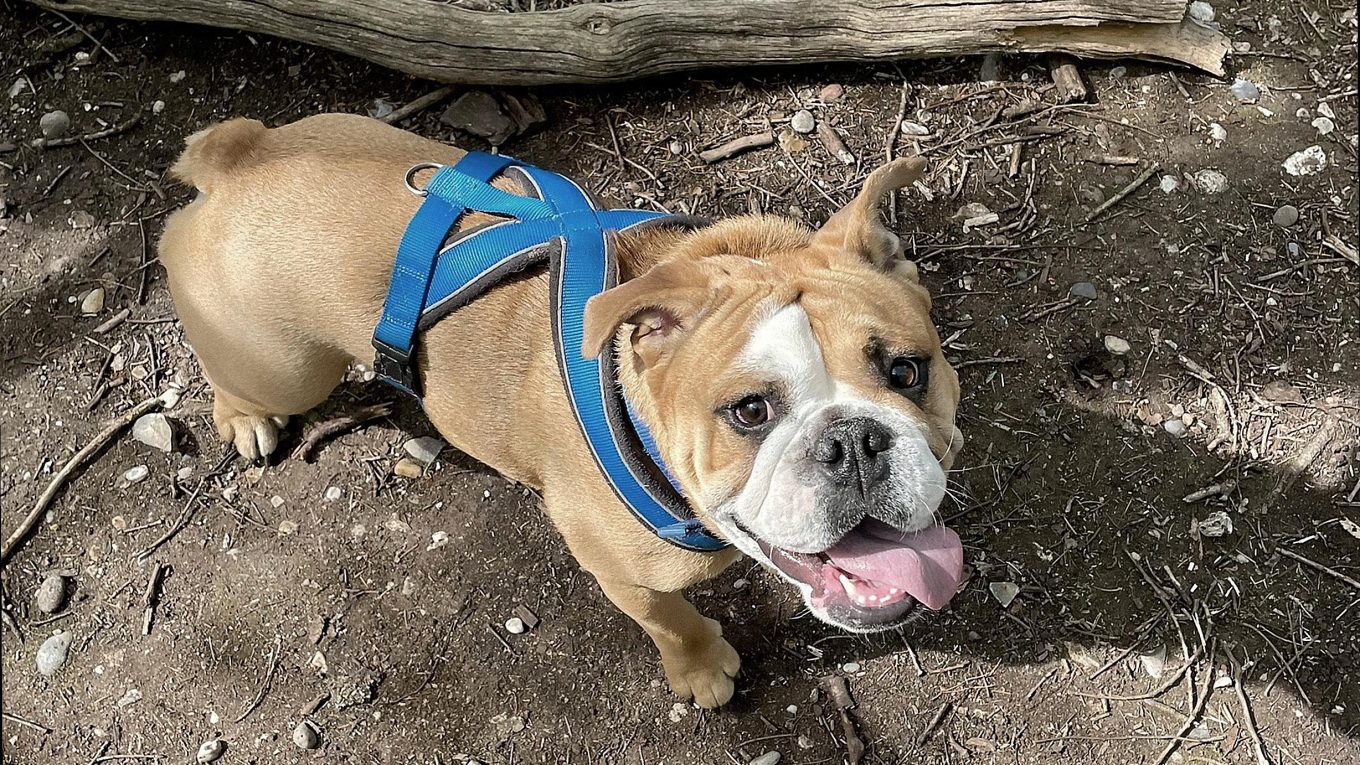Are Bulldogs illegal in the US?
Picture this: you’re strolling through a vibrant dog park, surrounded by an eclectic mix of four-legged friends. Suddenly, your eyes lock onto a captivating English Bulldog, with its adorable wrinkled face and sturdy build. Your heart skips a beat, and you can’t help but wonder: are Bulldogs legal in the United States?
This puzzling question has left countless dog lovers and potential owners scratching their heads. The world of pet ownership is like a wild rollercoaster ride, with each state having its own set of rules and regulations. While Bulldogs have an undeniable charm, their legal status remains shrouded in controversy and confusion.
But fear not. In this blog post, we’re here to unleash the truth about Bulldogs’ legality in the United States. We’ll navigate through a labyrinth of laws and restrictions to uncover where these lovable goofballs are welcomed with open arms and where they might be barking up the wrong tree. So grab yourself a steaming cup of coffee, get comfy, and join us on this eye-opening journey as we unravel the mystery behind Bulldogs’ legal standing in the US.
What are Bulldogs?
Contents
- 1 What are Bulldogs?
- 2 Legal Status of Bulldogs in the US
- 3 Breed-Specific Legislation (BSL) and Bulldogs
- 4 Popularity of French Bulldogs
- 5 Responsible Ownership for Bulldog Owners
- 6 Local Regulations to Consider When Owning a Bulldog
- 7 Training and Socialization for Bulldog Owners
- 7.1 Consistency is Key: Routines and Boundaries
- 7.2 Positive Reinforcement: Motivating Bulldogs to Excel
- 7.3 Socialization: Building Confidence and Reducing Anxiety
- 7.4 Basic Obedience: Safety and Ease of Interaction
- 7.5 Addressing Problem Behaviors: Seeking Professional Guidance
- 7.6 Investing Time and Effort: Responsible Bulldog Ownership
- 8 Veterinary Care for Bulldog Owners
- 9 Conclusion
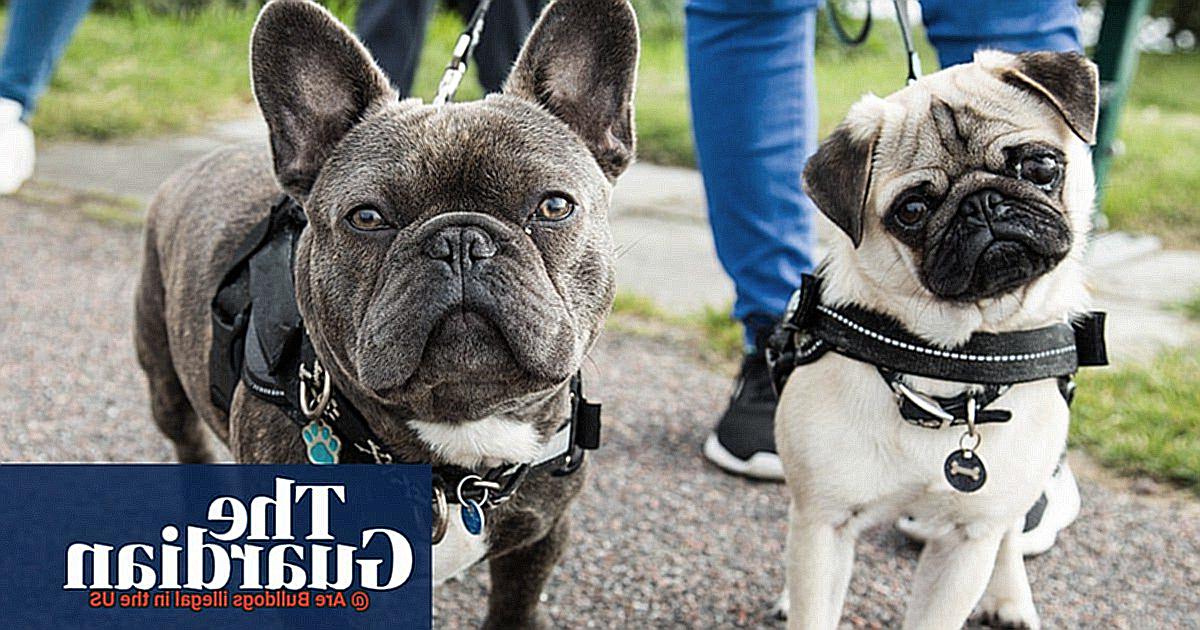
Whether you’re a fan of their unique appearance or considering adding one to your family, this article will provide you with a comprehensive overview of these lovable dogs. As a proud owner of a French Bulldog myself, I’m excited to share my knowledge and experience with you.
History and Origins:
Bulldogs have a fascinating history that dates back to medieval England. Originally bred for bull-baiting, these courageous dogs have evolved into the gentle and friendly companions we know today. Their transformation from fierce fighters to affectionate family pets is a testament to their adaptability and loyalty.
Physical Characteristics:
Bulldogs are medium-sized dogs with a muscular build and broad shoulders. Their distinctive wrinkled face and prominent underbite give them a unique expression that melts hearts wherever they go. Their short, smooth coat comes in various colors, adding to their charm.

Temperament and Personality:
Bulldogs are renowned for their calm and friendly nature. They are loyal, affectionate, and great with children, making them excellent family pets. These dogs thrive on human companionship and enjoy being part of the family activities. Bulldogs are also known for their sense of humor and ability to bring joy to any room.
Exercise and Care:
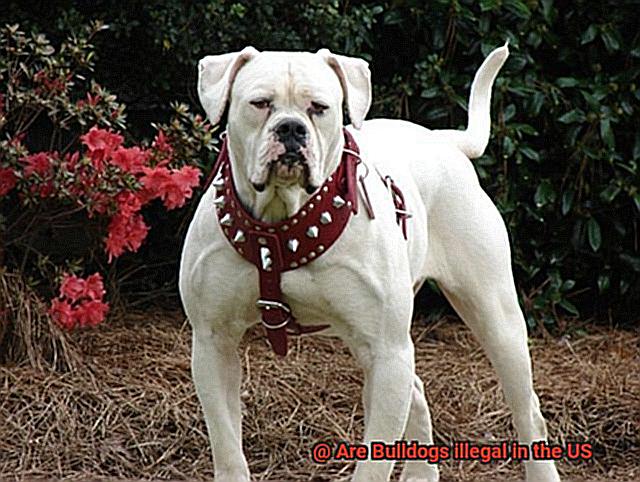
While Bulldogs have a sturdy build, they are not high-energy dogs. They require moderate exercise, such as regular walks and playtime, to keep them happy and healthy. However, it’s important to prevent them from becoming overweight by monitoring their diet and providing appropriate portions.
Health Considerations:
As with any breed, Bulldogs may be prone to certain health issues. Their facial structure can lead to breathing difficulties and eye problems. Regular veterinary care and attention to their specific needs are crucial for maintaining their well-being.
Legalities and Responsible Ownership:
In general, Bulldogs are legal to own in the United States. However, it’s essential to familiarize yourself with local regulations and any breed-specific legislation that may be in place. Responsible ownership, including proper care, training, and socialization, is key to ensuring a harmonious relationship between Bulldogs and their communities.
Legal Status of Bulldogs in the US
Legal Status of Bulldogs in the US: What French Bulldog Owners Need to Know
French Bulldogs are undoubtedly one of the most beloved dog breeds in the United States. Their distinctive appearance, friendly nature, and adaptability make them a popular choice for many households. However, it’s important for French Bulldog owners to understand the legal status of owning these adorable pups in the US, as there may be certain restrictions or requirements that apply.
Understanding Local Regulations
When it comes to the legal status of Bulldogs, it’s crucial to recognize that laws can vary from state to state and even within different cities or counties. It’s essential for owners to research and familiarize themselves with the specific regulations in their area. This can help prevent any potential conflicts with local authorities and ensure compliance with all necessary requirements.
Potential Restrictions and Requirements
While Bulldogs are generally legal to own in the US, there may be certain restrictions or requirements imposed by local ordinances or breed-specific laws. These regulations can include:
- Limits on the Number of Dogs: Some cities or counties may have regulations that limit the number of dogs allowed per household. It’s important for owners to check if there are any restrictions on the number of French Bulldogs they can have.
- Licensing and Permits: Certain areas may require specific licensing or permits for owning certain breeds, including French Bulldogs. Owners should inquire with their local animal control agencies or city hall to determine if any special permits are necessary.
Breed-Specific Legislation (BSL)
Another factor that French Bulldog owners need to be aware of is Breed-Specific Legislation (BSL). BSL refers to laws or regulations that target specific breeds based on assumptions or stereotypes about their behavior. Unfortunately, some states have enacted BSL that can affect Bulldogs and other breeds. These laws often impose restrictions on owning, breeding, or keeping certain breeds.
Opposition to BSL
It’s worth noting that there has been growing opposition to BSL in recent years. Many organizations and advocates argue against its effectiveness and fairness, as it unfairly targets certain breeds based on misconceptions. As a result, some states and localities have repealed or amended their BSL laws.
Stay Informed and Compliant
To ensure compliance with any breed-specific restrictions or requirements, French Bulldog owners should stay informed about the laws in their area. Consulting with local authorities or animal control agencies can provide valuable information on the legal status of Bulldogs in a specific jurisdiction.
Breed-Specific Legislation (BSL) and Bulldogs
Bulldogs, including the lovable French Bulldogs, are often unfairly stigmatized by breed-specific legislation (BSL). These laws and regulations target specific dog breeds, labeling them as dangerous or aggressive. However, as an expert in the field, I can confidently say that Bulldogs are not deserving of this negative reputation. In fact, they are known for their friendly and docile nature.
Bulldogs are misunderstood
One of the reasons Bulldogs are unfairly targeted by BSL is their physical resemblance to other breeds, such as Pit Bulls. Due to this mistaken identity, French Bulldogs often find themselves included in breed bans or restrictions. However, it is important to note that Bulldogs have distinct characteristics and temperaments that set them apart from other breeds.
Bulldogs have a stable temperament
The American Kennel Club (AKC) recognizes Bulldogs as a breed with a stable temperament. They are known for being affectionate, patient, and good with children – making them excellent family pets. In fact, many Bulldog owners can attest to their gentle nature and their ability to get along well with other animals and people.
BSL is largely ineffective
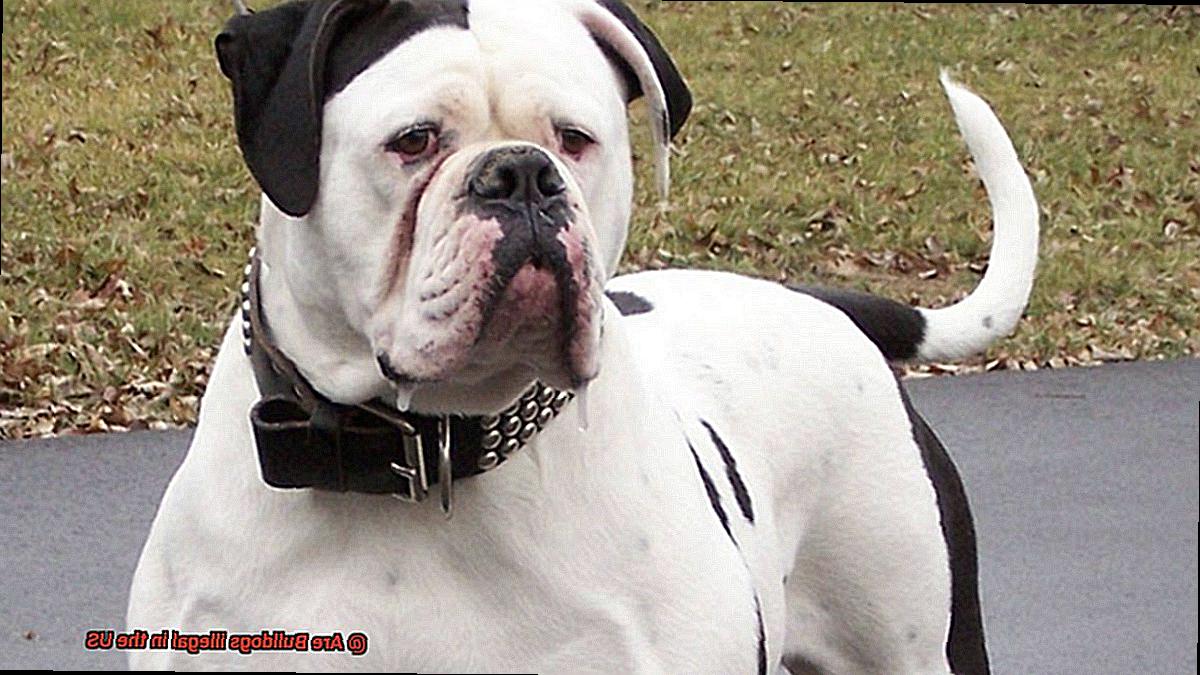
Research has shown that breed-specific legislation is largely ineffective in achieving its intended goals of reducing dog bites and incidents of aggression. Instead of focusing on specific breeds, it is more effective to promote responsible pet ownership practices such as proper socialization and training for all dog breeds.
BSL varies across different areas
It is important for prospective Bulldog owners to familiarize themselves with the specific laws and regulations in their area before considering ownership. BSL varies greatly across different states and even municipalities within the United States. Some areas may have strict bans on certain breeds like Bulldogs, while others may have less restrictive regulations or no breed-specific legislation at all.
Popularity of French Bulldogs
If you’ve been scrolling through social media or strolling down the street, chances are you’ve come across a French Bulldog. With their adorable appearance and lovable personalities, it’s no wonder these furry friends have skyrocketed in popularity in recent years. In this article, we will explore the reasons behind the French Bulldog craze and shed light on some important considerations for potential owners.
Adorable Looks that Melt Hearts:
French Bulldogs are undeniably cute with their compact size, bat-like ears, and expressive eyes. Their charming appearance has captivated dog lovers around the world, making them irresistible to many.
Friendly and Affectionate Companions:
French Bulldogs are known for their friendly and affectionate nature. They thrive on human companionship and make excellent family pets. Whether you have kids or other pets, Frenchies will fit right in and bring joy to your household.
Low-Maintenance Lifestyle:
If you’re not the most active person or live in a smaller space, French Bulldogs are a perfect match. They require minimal exercise compared to some other breeds, making them suitable for individuals or families with a more relaxed lifestyle.
Celebrity Endorsements:
When celebrities like Lady Gaga, Hugh Jackman, and The Rock are seen adoring their French Bulldogs, it’s hard not to be influenced by their choice of furry friend. These endorsements have undoubtedly contributed to the breed’s popularity.
Social Media Sensations:
French Bulldogs have taken over social media platforms with numerous dedicated Instagram accounts showcasing their daily adventures and antics. Their hilarious videos and adorable photos have helped spread the Frenchie fever even further.
American Kennel Club Recognition:
The American Kennel Club (AKC) has acknowledged the growing demand for French Bulldogs by consistently ranking them among the top ten most popular dog breeds in the United States. This recognition has solidified their status as a beloved breed.
Ethical Considerations:
While French Bulldogs’ popularity is undeniable, it’s essential to address the downside. The surge in demand has led to unethical breeding practices and an increase in puppy mills. Potential owners must do their research and find reputable breeders who prioritize the health and welfare of their dogs.
Responsible Ownership for Bulldog Owners
As a proud Bulldog owner myself, I understand the importance of responsible ownership in ensuring the well-being of these lovable companions. Bulldogs are not only adorable and affectionate, but they also have specific needs that require attentive care.
In this blog post, we will explore the key aspects of responsible ownership for Bulldog owners, from legal considerations to health and training.
- Know the Legal Requirements: Bulldogs are not illegal in the United States, but it’s crucial to be aware of any specific regulations or restrictions in your area. Familiarize yourself with local laws to avoid any legal issues and ensure that you are providing a safe and secure environment for your Bulldog.
- Health and Wellness: Bulldogs have unique health needs that require special attention. Regular veterinary check-ups, vaccinations, and preventive care such as flea and tick treatments are essential. It’s also important to address specific health concerns that Bulldogs are prone to, such as obesity and respiratory issues. A healthy diet, regular exercise, and mental stimulation are vital in keeping your Bulldog happy and healthy.
- Beat the Heat: Bulldogs’ brachycephalic nature makes them more susceptible to heat exhaustion and heatstroke. During hot weather, it’s crucial to be cautious and provide ample shade and fresh water for your Bulldog. Avoid exercising them during the hottest parts of the day and be vigilant for signs of overheating.
- Training and Socialization: Bulldogs may be stubborn at times, but consistent training methods based on positive reinforcement can help overcome their independent nature. Socialization is equally important to ensure that your Bulldog is comfortable around other dogs and people.
- Community Considerations: Responsible ownership extends beyond our furry friends to our community. Cleaning up after your Bulldog, keeping them on a leash when required, and being considerate of neighbors regarding excessive barking or other disturbances are all part of being a responsible owner.
- Creating a Safe Environment: Bulldogs are curious creatures, and it’s essential to provide a safe environment for them. Secure your fences or yards to prevent any potential escapes or accidents. Keep dangerous substances out of reach and ensure that your Bulldog cannot harm themselves or others.
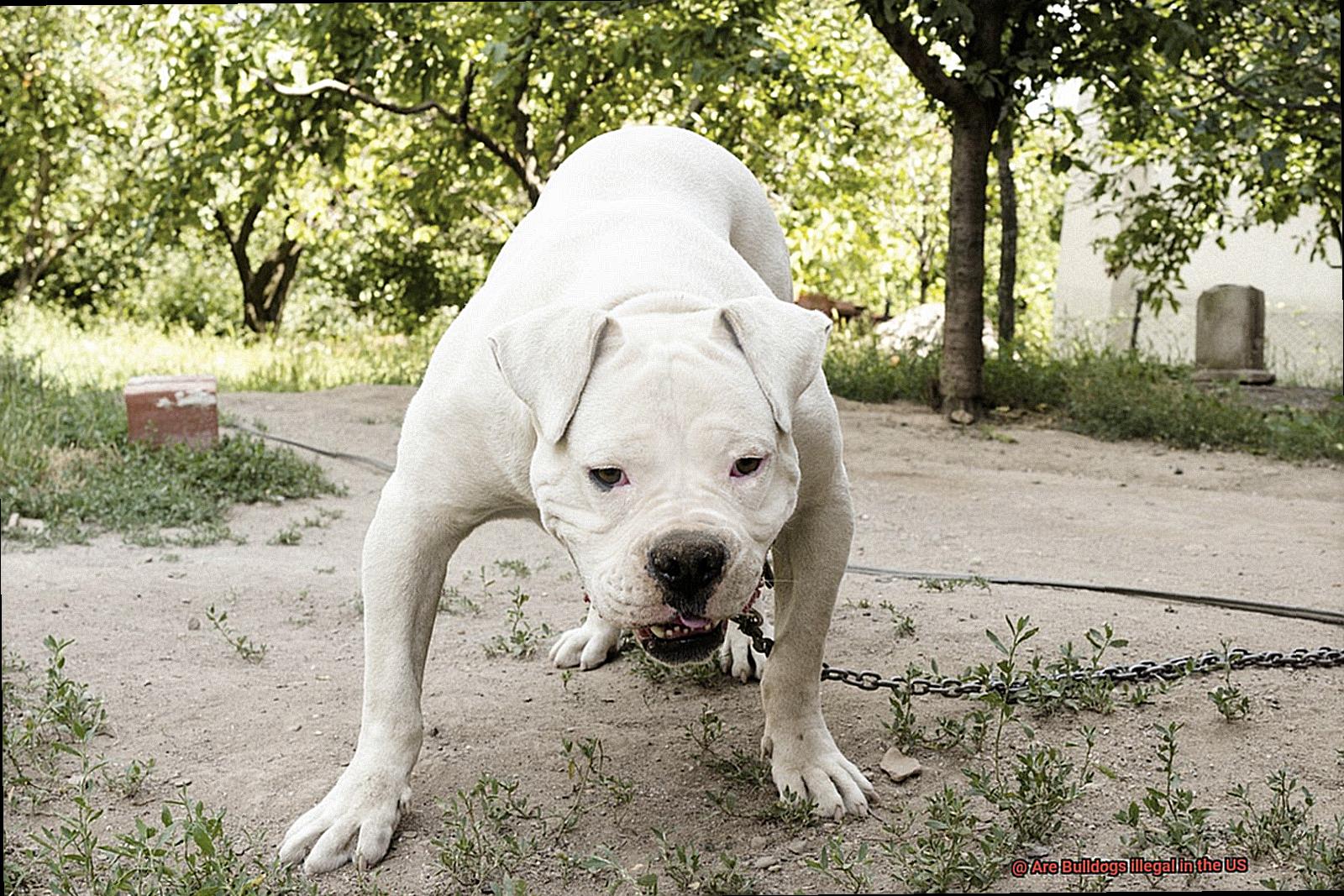
Remember, responsible ownership is not just a legal obligation; it’s a moral duty. By following these guidelines, you can ensure the well-being of your Bulldog while fostering a loving and fulfilling relationship. Let’s be the best Bulldog owners we can be.
Local Regulations to Consider When Owning a Bulldog
When it comes to owning a bulldog, it’s important to be aware of the local regulations that may apply to you. From breed-specific legislation to licensing requirements, understanding and complying with these regulations is crucial for responsible ownership. In this article, we’ll explore some of the key local regulations that bulldog owners should consider.
Breed-Specific Legislation and Restrictions
One of the first things bulldog owners should research is whether their area has any breed-specific legislation in place. Breed-specific legislation (BSL) refers to laws that restrict or ban the ownership of certain breeds, including bulldogs. These laws are often based on concerns about a breed’s temperament or potential for aggression.
While BSL can vary from state to state and even within different cities or counties, it’s important to be aware of any restrictions that may exist in your area. Violating these laws can result in fines, confiscation of your dog, or other legal consequences. To find out if BSL applies to you, contact your local animal control office or city council.
Licensing and Permit Requirements
In many areas, owning a bulldog requires obtaining a license or permit. These requirements are typically aimed at ensuring responsible ownership and may include provisions for vaccinations, microchipping, spaying/neutering, and proper containment.
To comply with licensing and permit requirements, make sure your bulldog is up to date on all necessary vaccinations and has been microchipped. Additionally, ensure that your property is properly secured to prevent your dog from escaping.
Restrictions on Number of Dogs and Zoning Ordinances
Some localities may have restrictions on the number of dogs that can be owned per household. If you already have other pets or are considering adding another dog to your family, be sure to check if there are any limitations in place.
Zoning ordinances can also dictate where bulldogs can be kept. Some areas may have specific regulations regarding pet ownership in residential areas or apartment complexes. It’s important to review these regulations to ensure that your living situation is compatible with owning a bulldog.
Noise Control, Waste Disposal, and Leash Laws
In addition to breed-specific legislation and licensing requirements, there may be other local regulations that bulldog owners should be aware of. These can include noise control ordinances, waste disposal rules, and leash laws.
To be a considerate neighbor and responsible pet owner, make sure you familiarize yourself with these regulations. Keep your bulldog’s barking under control, clean up after your dog when out for walks, and always abide by leash laws to ensure the safety of your pet and those around you.
Staying Informed
Local regulations can change over time, so it’s important to stay informed about any updates or new requirements that may apply to bulldog ownership in your area. Contact your local animal control office or city council for the most up-to-date information.
Training and Socialization for Bulldog Owners
Consistency is Key: Routines and Boundaries
Bulldogs are creatures of habit, so establishing consistent rules and boundaries is essential for their training. From day one, bulldog owners should create a routine that includes regular feeding times, exercise, and potty breaks. By sticking to a schedule, owners can help their bulldogs understand what is expected of them and provide them with a sense of security.
Positive Reinforcement: Motivating Bulldogs to Excel
Bulldogs respond well to positive reinforcement, so it’s important to reward desired behaviors with praise, treats, and affection. Whether it’s sitting on command or walking politely on a leash, using positive reinforcement can motivate bulldogs to repeat these actions. Remember, a well-timed “Good boy.” and a tasty treat can work wonders in training your bulldog.
Socialization: Building Confidence and Reducing Anxiety
Socialization is a critical aspect of bulldog ownership. Exposing them to various people, animals, and environments at an early age helps build their confidence and reduces anxiety. Start by introducing your bulldog to friendly dogs and allowing them to interact with people of all ages. Take them for walks in busy areas to expose them to different sights, sounds, smells, and textures. The more experiences they have, the more well-adjusted they will become.
Basic Obedience: Safety and Ease of Interaction
Teaching bulldogs basic obedience commands such as sit, stay, come, and leave it is essential for their safety and the convenience of everyday interactions. Consistent training sessions using positive reinforcement can help bulldogs master these commands and respond reliably in various situations. Plus, having a well-trained bulldog makes outings and visits to the vet much smoother.
Addressing Problem Behaviors: Seeking Professional Guidance
Bulldogs can be stubborn at times, so addressing specific behavioral issues may require the expertise of a professional dog trainer or behaviorist. Whether it’s excessive barking, aggression, or separation anxiety, seeking guidance from an expert can provide tailored solutions to help your bulldog overcome these challenges.
Investing Time and Effort: Responsible Bulldog Ownership
Training and socialization are vital components of responsible bulldog ownership. By establishing routines, using positive reinforcement, and exposing them to various experiences, owners can ensure their bulldogs become well-behaved and confident companions. Bulldogs may have unique temperaments, but with patience, consistency, and dedication, you can raise a happy and obedient bulldog.
Veterinary Care for Bulldog Owners
Owning a bulldog is like having a loyal, four-legged companion by your side. These adorable creatures are known for their friendly nature and distinctive appearance. However, bulldogs require special care, especially when it comes to their health. In this section, we will explore the importance of providing regular veterinary care for bulldog owners.
Understanding Bulldog Health Issues:
Bulldogs are prone to certain health issues such as breathing problems, joint disorders, and skin allergies. It is crucial for bulldog owners to find a veterinarian who has experience in treating these specific needs. Look for a vet who understands the unique health issues that bulldogs face and is familiar with their care requirements.
Regular Check-ups and Preventive Treatments:
Regular veterinary check-ups are essential for maintaining your bulldog’s overall health. During these visits, your vet will perform a thorough examination, check for signs of illness or discomfort, and provide necessary vaccinations and preventive treatments.
Respiratory Health:
Bulldogs often struggle with respiratory issues due to their short snouts. Regular check-ups with a veterinarian can help identify any potential problems and ensure early intervention. This is especially important during hot weather or when engaging in physical activities.
Dental Care:
Dental problems are prevalent in bulldogs, such as gum disease and tooth decay. Regular professional cleanings and proper at-home dental care can help prevent these issues.
Joint Health:
Bulldogs may experience joint problems due to their heavy build. Regular exercise, weight management, and joint supplements can help alleviate these issues. Your vet may recommend specific dietary changes or exercises to support your bulldog’s joint health.
Skin Allergies:
Skin allergies are common in bulldogs and can cause itching, redness, and discomfort. Your vet can help diagnose the underlying cause of these allergies and recommend appropriate treatment options, such as specialized diets or medications.
Proactive Monitoring:
In addition to regular veterinary care, it is important for bulldog owners to be proactive in monitoring their pet’s health. Pay attention to any changes in behavior, appetite, or physical appearance and consult your vet if you notice anything unusual.
Pet Insurance:
Due to their potential health issues, bulldogs may require more frequent veterinary visits and specialized treatments. Having pet insurance can help alleviate the financial burden of these expenses.
XdFfCPK5ycw” >
Conclusion
In conclusion, Bulldogs are not illegal in the United States.
Despite some misconceptions and restrictions in certain cities or housing communities, Bulldogs are generally allowed as pets throughout the country. It is important to note that responsible ownership and proper care are crucial to ensure the well-being of these lovable dogs.
So, if you’re considering adding a Bulldog to your family, rest assured that they are perfectly legal furry friends in the US.
